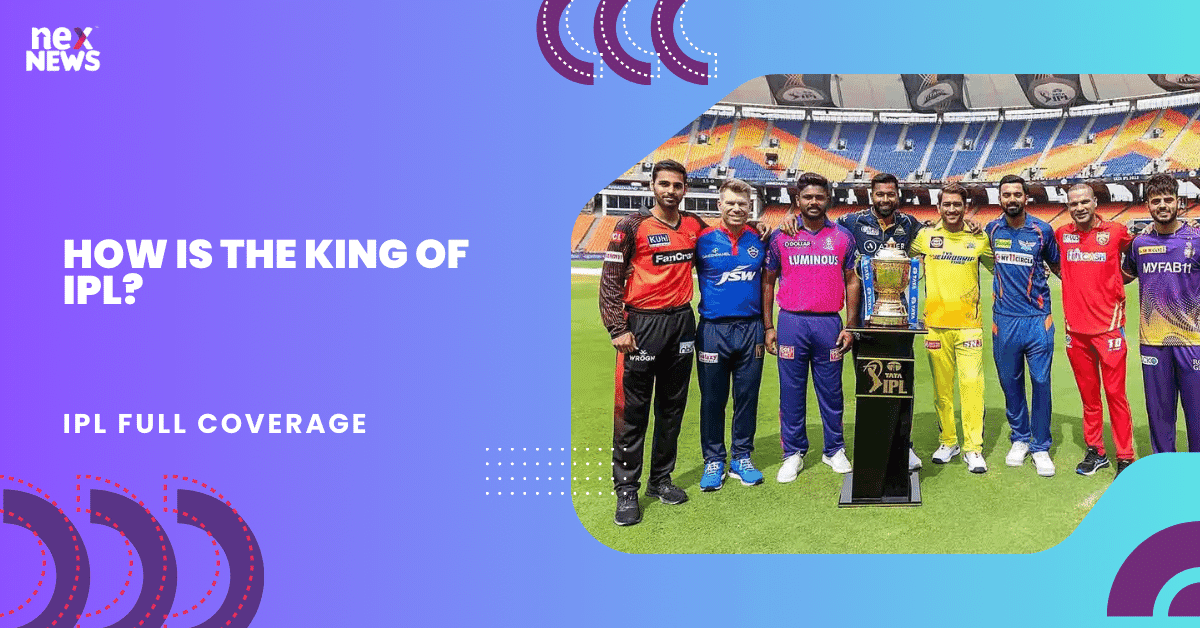I. The Beginnings of IPL
The Indian Premier League (IPL) was first introduced in 2008, with the aim of revolutionizing the world of cricket. It was the brainchild of the Board of Control for Cricket in India (BCCI), which wanted to bring a new and exciting format to the game. The tournament was set up as a franchise-based league, with city-based teams representing different regions of India.
The inaugural season of the IPL was met with tremendous enthusiasm from fans and players alike. The league attracted some of the biggest names in cricket from all over the world, including established international players and promising young talents. The unique format of the IPL, which combined the intensity of T20 cricket with the glitz and glamour of entertainment, quickly captured the imagination of cricket lovers and turned the tournament into a massive success. The popularity of the IPL skyrocketed, leading to a major shift in the dynamics of the cricketing world.
II. Evolution of IPL over the years
The Indian Premier League (IPL) has witnessed a remarkable evolution since its inception in 2008. In its early days, the tournament faced skepticism and doubts about its viability. However, with each passing year, the IPL has proven its success and solidified its position as one of the most popular and lucrative T20 leagues in the world.
One of the significant developments in the evolution of IPL is the constant expansion of the tournament. Initially, the IPL comprised eight teams, but over the years, the league has seen the addition of new franchises. This expansion not only provided fans with more exciting matches but also opened doors for more players to showcase their talent. With the entry of teams like Rising Pune Supergiant and Gujarat Lions in 2016, and subsequently, the return of Chennai Super Kings and Rajasthan Royals in 2018, the IPL continued to grow and captivate cricket enthusiasts across the globe.
III. Records held by the top IPL players
AB de Villiers holds the record for the fastest century in IPL history. In a match against the Gujarat Lions in 2016, de Villiers reached his century off just 43 balls. His stunning knock included 12 fours and 8 sixes, showcasing his exceptional batting skills and ability to score runs at a rapid pace. This record not only highlights de Villiers' individual brilliance but also his significant contribution to Royal Challengers Bangalore's success in the IPL.
Another notable record is held by Chris Gayle, who holds the record for the highest individual score in an IPL innings. Gayle achieved this feat in 2013 when he blasted an unbeaten 175 off just 66 balls for Royal Challengers Bangalore against the Pune Warriors India. His innings was a masterclass in power hitting, as he smashed 13 fours and a record-breaking 17 sixes. Gayle's explosive batting prowess and ability to dominate bowling attacks make him one of the most feared batsmen in IPL history.
IV. Impact of IPL on Indian cricket
The impact of the Indian Premier League (IPL) on Indian cricket has been nothing short of revolutionary. Since its inception in 2008, the IPL has completely transformed the way cricket is perceived and played in the country. It has not only provided a platform for domestic players to showcase their talent on a global stage but has also attracted some of the biggest international stars, creating an unparalleled level of competition.
One of the most significant impacts of the IPL on Indian cricket is the rise of young talents. The league has acted as a breeding ground for emerging players, giving them exposure to high-pressure situations and allowing their skills to flourish. Many promising cricketers have made their mark in the IPL and subsequently found success in international cricket. This has not only bolstered the Indian national team but has also ensured a steady supply of talented players for the future. The IPL has truly revolutionized the way young players are identified and nurtured in the country.
V. Strategies used by successful IPL teams
Successful IPL teams have utilized various strategies to achieve their goals. One such strategy is the careful selection of players during the auction. Teams often focus on identifying players who have consistently performed well in previous IPL seasons or in other T20 tournaments. Additionally, teams also consider factors such as player availability, versatility, and compatibility with the team's existing composition before making their selection. This strategic player recruitment helps teams build a strong and balanced squad capable of performing well in all aspects of the game.
Another key strategy employed by successful IPL teams is effective team management. This involves creating a positive team culture, fostering unity among players, and ensuring clear communication between the coaching staff and the players. Successful teams also prioritize the overall development and well-being of their players through rigorous training sessions, fitness programs, and mental conditioning. Furthermore, they assign specific roles and responsibilities to each player based on their individual strengths, ensuring that everyone contributes effectively to the team's success. The combination of these strategies ensures that successful IPL teams maintain a well-rounded and harmonious team environment conducive to consistent performances.


POST A COMMENT (0)
All Comments (0)
Replies (0)